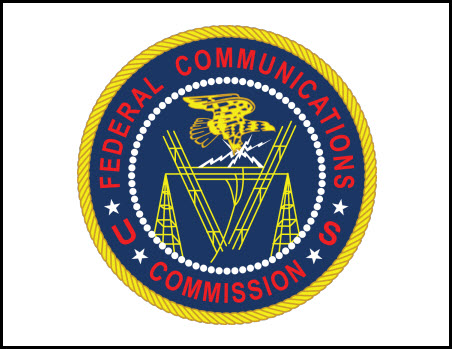Incentive Auction to End After Stage Four
The smarter way to stay on top of the multichannel video marketplace. Sign up below.
You are now subscribed
Your newsletter sign-up was successful

WASHINGTON — The Federal Communications Commission will be able to close the broadcast-TV spectrum auction, and at an 84-Megahertz spectrum total some had suggested was the last clearing target for a successful process.
The second round of stage four of the forward portion of the FCC incentive auction ended Wednesday afternoon (Jan. 18) with bidders raising their ante to $18,208,164,08, but more importantly $1.2570 per MHz POP. The total could still go up, but it is now enough to close the auction once there is no more bidding.
Round one of the forward auction ended at noon Wednesday with bidders offering $17.7 billion ($17.2 billion net of bidding credits), which more than covers broadcasters’ asking price of $10 billion plus the $2 billion or so in auction and repacking costs. But it was still just under three cents short of the $1.25 per MHz POP in the top 40 markets (actually PEAs, or "partial economic areas") that would satisfy the second benchmark and allow the auction to close.
That per-POP price is essentially a minimum price the government will take for the spectrum in top markets in order to get what it considers a fair market price. So, the auction could only close when that fair top market price was met and the broadcaster-plus-costs total was exceeded.
The spectrum auction ain’t over ’til it’s over, but the final-stage rule has now been met, with forward auction bidders having bid enough to both cover the broadcasters' ask (the second component necessary to close the auction), and at a the $1.25 per MHz POP price in the top 40 markets that meets that second component of the so-called final stage rule.
The auction will continue until there is no more bidding in any market. But while the auction total will continue to climb, broadcasters' payout is capped at that $10 billion, with the balance after expenses going to deficit reduction, as the spectrum auction legislation specified.
Now that the final stage rule has been met, the FCC's spectrum reserves kick in, where up to 30 MHz has been reserved in each market for auction-eligible bidders--small businesses, women, minority-owned. The FCC set aside some spectrum so the larger players could not simply buy it all up.
The smarter way to stay on top of the multichannel video marketplace. Sign up below.
Those reserve-elligible bidders can bid against each other for that spectrum, or choose to bid with against the big fish for the rest of the spectrum, but non-auction eligible bidders can't bid for the reserve spectrum.
RELATED: Broadband Bills Head to Senate Commerce Markup
After the auction closes, the next step will be for the FCC to hold a second mini-auction among the winning bidders for the exact frequencies they will be getting. They were bidding for generic 10-MHz blocks in the main part of the auction.
It remains to be seen how happy broadcasters are at a payout of some $60 billion less than their first ask. That means a lot fewer payouts, since broadcasters are only giving up 84 MHz of spectrum rather than the initial 126 MHz.
Winning bidders will still be getting a big payday, though, and reducing the number of TV stations forced to move off their spectrum should make the repack easier and reduce the likelihood of interference for broadcasters or wireless operators.
The auction began May 31.
“Today's auction results are a four-way positive result for broadcasters, the mobile industry, the government, and the American people," said Dan Hayes, PWC Strategy& principal. "Most importantly, they are the first steps towards freeing up additional spectrum for use in satisfying the public's seemingly insatiable desire for mobile connectivity.
"While the top-line results have been disappointing to some, $10B of proceeds are also expected to inject new life into some segments of the broadcast industry and support future opportunities for other stations to monetize their spectrum. The ultimate spread between the forward and reverse auctions will also provide a multi-billion dollar payday for the federal government, further enforcing its interest in auctions."
Preston Padden, former executive director of the Expanding Opportunities for Broadcasters Coalition, had said after broadcasters dropped their asking price to $10 billion that if there were a God, stage 4 would be the last. "There is a God and I am grateful to her!" he said after the final stage rule was met.
Contributing editor John Eggerton has been an editor and/or writer on media regulation, legislation and policy for over four decades, including covering the FCC, FTC, Congress, the major media trade associations, and the federal courts. In addition to Multichannel News and Broadcasting + Cable, his work has appeared in Radio World, TV Technology, TV Fax, This Week in Consumer Electronics, Variety and the Encyclopedia Britannica.

